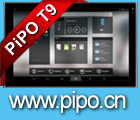The Zoomtak V Plus Android TV box is based Amlogic-S912, Octa core A53 at 2.0GHz, in Alumium Housing, LED display, runs Andriod 6.0, with 2GB RAM, 16GB EMMC, Supports 4K2K H.265 hardware decode, HDR 10bit, Kodi 16.1, 1000M Ethernet. HDMI 2.0, Dual band ac wifi 2.4G/5.8G with Removable antenna.
Distributors can contact Zoomtak here:
Shenzhen Zoomtak Electronics Co., Ltd.
Tel: +86 755 29033689
Mob: +86 13538098986 (whatsapp)
Web: http://www.zoomtak.net
Email: joanna@zoomtak.net
Skype: joanna_zhouyu
Wechat: zoomtakjoanna



